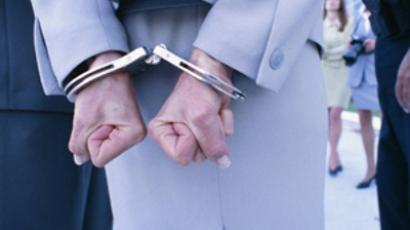Kyrgyz violence – allegations of genocide
Mourning for those killed in ethnic violence in the south of Kyrgyzstan continues, while the country’s authorities have admitted the real number of dead is much greater than the official toll of 191.
The clashes between the Uzbek minority and the Kyrgyz majority started on Friday in city of Osh, and later spread to regional center Jalal-Abad.
The interim Kyrgyz government has deployed troops with the right to shoot to kill in order to restore order in the region.
Russian news agency Interfax quoted the deputy head of the Kyrgyz interim government, Azimbek Beknazarov, as saying that the authorities had already detained several organizers of the mass riots in the south of the country. The official also said law enforcers had detained a number of foreign mercenaries, including snipers. Beknazarov refused to disclose the nationalities of those detained, citing “interests of the investigation.” He said that the authorities had already instigated 29 criminal cases into the unrest.
The refugee camps in Uzbekistan are overwhelmed, and aid agencies are warning basic supplies are running out, despite the fact that more and more help and humanitarian planes with basic products are arriving. Russia has already sent six cargo planes with essentials, but despite all the help arriving, it is far from being enough.
The UN says some 200,000 people have fled their homes, with nearly half pouring across the border to neighboring Uzbekistan, where they are being housed in about 75 refugee camps. The Uzbek authorities never expected that many refugees and the camps are now full to bursting point.
The Kyrgyz-Uzbek border was closed for a short period of time, but then was re-opened and now the flow of refugees – women with children most of them – continue to cross the border.
Russia, along with other countries and international organizations, has been sending aid to the country, but the situation there is still critical.
Russian President Dmitry Medvedev has ordered the Emergencies Ministry and Ministry of Foreign Affairs to help Uzbekistan in housing the refugees and giving them humanitarian aid, the president’s press secretary, Natalya Timakova, said on Thursday.
Meanwhile, later on Thursday the CSTO decided not to send any forces, including peacekeepers, into the conflict zone. But the members of this organization have started to discuss sending in law enforcement specialists who are skilled in preventing massive clashes and in finding the initiators of rioting.
“The Collective Security Treaty Organization is already helping Kyrgyzstan. The organization's secretaries held an urgent meeting in Moscow where they decided to provide assistance to Kyrgyz police to stabilize the situation in the country. The CSTO will also help the country to identify those behind the violence,” Russian Foreign Minister Sergey Lavrov announced.
Human cost
In southern Kyrgyzstan there are “SOS” inscriptions on the walls on every street in neighborhoods, but these led to even more violence.
“We did not have anything to protect ourselves with, so we had to write ‘SOS’ everywhere, but it did not help at all. Places where Uzbeks live all have ‘SOS’ signs – that is how they identified us,” remembers local Uzbek resident.
Shockingly enough, Kyrgyz neighbors were set on brutally exterminating Uzbek ones.
Wednesday was the first of the three days of national mourning.
“We would never distinguish between the Kyrgyz and Uzbeks. All of us are Muslims. Why are they not afraid? Don’t they have children? Don’t they have fathers and mothers? Why so relentless? What do they want?” cried one of the local women.
People have now blocked all the roads in and out of the Uzbek villages, using trucks for barricades.
Women and children fled to the border with Uzbekistan. Many were unable to cross it.
Many children have been separated from their parents.
Pregnant women are now running the risk of miscarriage due to the stress and strain of the last several days.
Although the official death toll is approaching 200, many believe the real figure is many times more. Allegations of genocide have been leveled.
Refugees insist that the international community must stop financing the Kyrgyz government, because they set houses, hospitals and mosques on fire deliberately to get aid money.
Now, even Kyrgyz human rights activists are coming to Uzbek refugee camps to talk to the people.
However, the words are yet to be backed by actions. Many people – Uzbek by ethnicity, Kyrgyz by passport – who have fled their homes still have nothing to eat and nowhere to go.
They do not feel particularly welcomed by either side of the border. They are too afraid to return to their old torched homes, but have neither the resources nor the places to build new ones.













